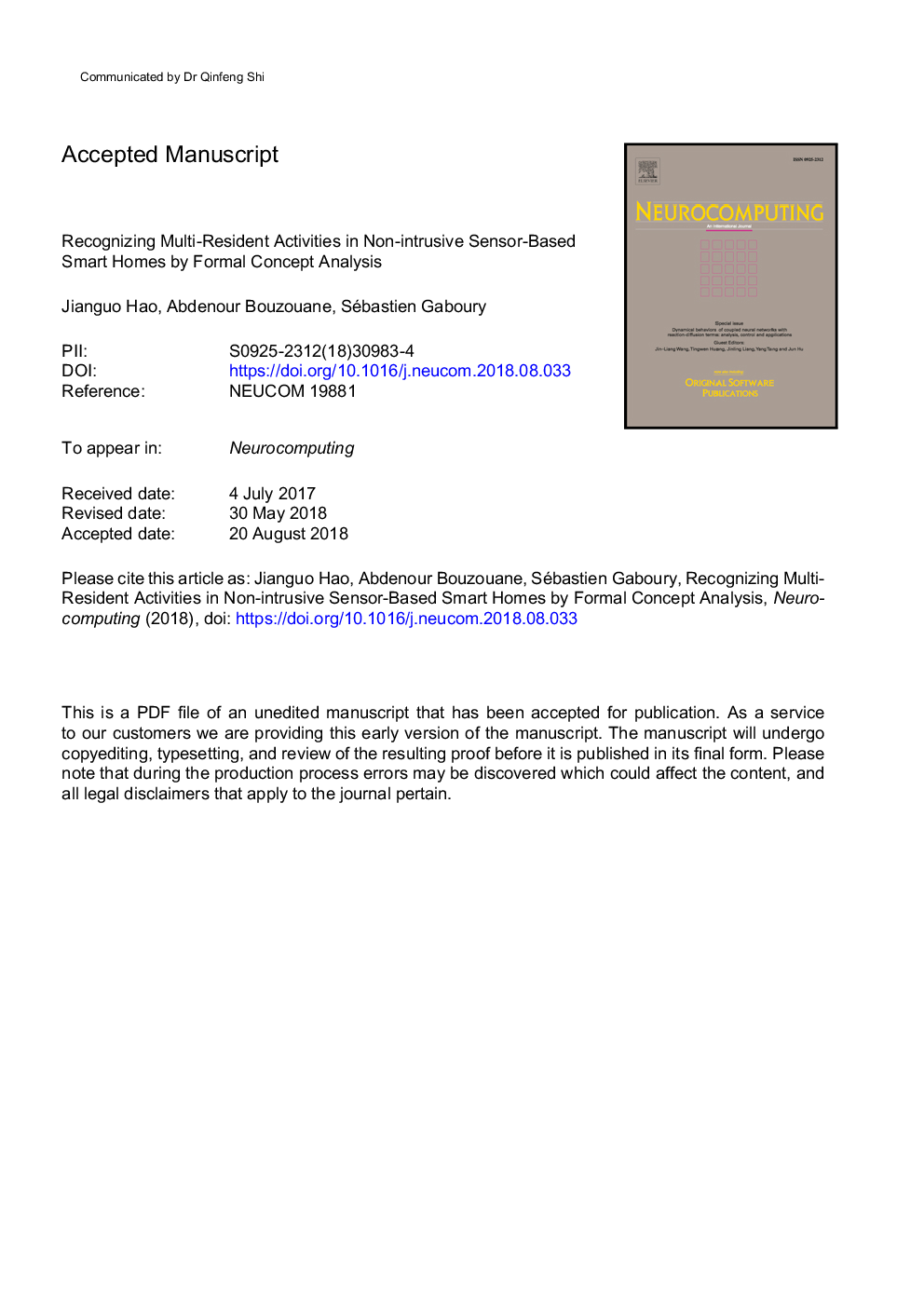| Article ID | Journal | Published Year | Pages | File Type |
|---|---|---|---|---|
| 11021143 | Neurocomputing | 2018 | 44 Pages |
Abstract
Activity recognition is one of the most important prerequisites for smart home applications. It is a challenging topic due to the high requirements for reliable data acquisition and efficient data analysis. Besides, the heterogeneous layouts of smart homes, the number of residents and varied human behavioral patterns also aggravate the complexity of recognition. Therefore, most human activity recognition systems are based on an unrealistic assumption that there is only one resident performing activities. In this paper, we investigate the issue of multi-resident activity recognition and propose a knowledge-driven solution on the basis of formal concept analysis (FCA) to identify human activities from non-intrusive sensor data. We extract the ontological correlations among sequential behavioral patterns. At the same time, these correlations are well organized in a graphical knowledge base, without intervention from domain experts. We propose an incremental lattice search strategy in order to retrieve the best inference given a few sensor events. Compared with other conventional probabilistic methods, our solution outperforms on the CASAS multi-resident benchmark dataset. Furthermore, we open up a promising solution of sequential pattern mining to discover the ontological features of temporal and sequential sensor data.
Related Topics
Physical Sciences and Engineering
Computer Science
Artificial Intelligence
Authors
Jianguo Hao, Abdenour Bouzouane, Sébastien Gaboury,
